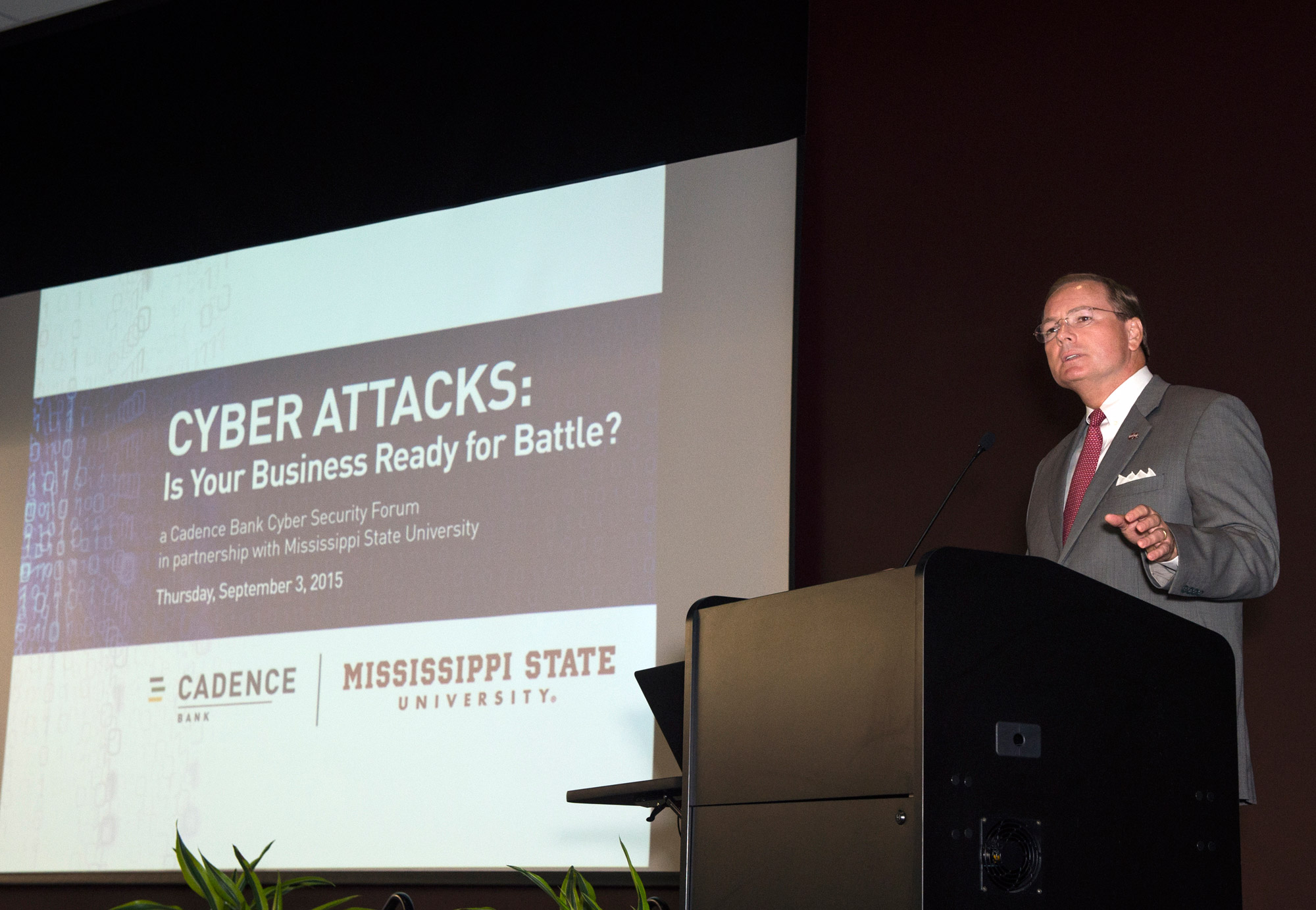Mississippi State, Cadence Bank align to help businesses battle fraud

Contact: Harriet Laird, MSU Office of Public Affairs; Danielle Kernell, Cadence Bank
STARKVILLE, Miss.--A forum to help local businesses address the critical issue of cyberterrorism and develop strategies to guard against cyber fraud was held Thursday [Sept. 3] by Cadence Bank in partnership with Mississippi State University.
Speakers from Cadence and MSU’s Distributed Analytics and Security Institute addressed more than 120 business owners and executives for the forum “Cyber Attacks: Is Your Business Ready for Battle?”
“We often hear it’s a matter of when, not if, an attack will occur,” said Jerry Toney, president, Cadence Bank Mississippi. “We felt it was imperative that we take the lead in addressing such a monumental threat against businesses in the Golden Triangle. Helping local companies protect their financial assets is another way we can contribute to keeping our community strong and healthy.”
Presenters included Dave Dampier, director of Mississippi State’s DASI; Wesley McGrew, assistant professor for DASI; Roy Sexton, director of corporate security at Cadence Bank and former U.S. Secret Service; and Katrina King, treasury management executive at Cadence.
Dampier explored recent occurrences of cyber incidents in the news, vulnerabilities that enabled these incidents, and a framework for dealing with cyber intrusions. He stressed that cyber intrusions will happen, and every organization must have an adaptive incident response program in place for dealing with intrusion incidents. Such programs, he contended, are essential in minimizing the loss or theft of information, returning impacted systems back to normal operating status quickly, and properly dealing with the legal issues that may result from these incidents.
McGrew discussed the importance of penetration testing, including what to expect at each stage of the process.
“Every day, organizations face advanced threat perpetrators who are well organized, funded and motivated to compromise their targets,” he explained. “To have a shot, companies have to think like thieves.”
He emphasized that simulating relevant and realistic threats against a business’s network, performed by a skilled third-party team, should be a critical part of every company’s cybersecurity defense plan.
Sexton discussed the shift from the physical risks of years’ past to today’s cybersecurity threats. Former special agent in charge of the U.S. Secret Service’s Birmingham District Office, Sexton saw an explosion in cyberterrorism when he returned to the field in the early 2000s as well as increased involvement by the U.S. Secret Service. He challenged the audience with the question, “Are we prepared for the evolution of terrorism as we knew it?”
King continued with a conversation on cybersecurity best practice strategies. She urged businesses to educate their employees about cyber fraud risks and empower them as the front line of defense.
“Ensuring that anti-virus/spyware software is installed, functional and updated with the most current version is a must,” she added.
King recommended that all businesses use Positive Pay and ACH Positive Pay on every account. “These tools act as fraud prevention systems for check and electronic fraud by alerting businesses to potentially fraudulent transactions before they impact a company’s accounts,” she said.